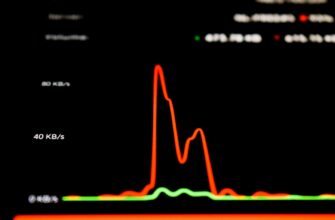Understanding DeFi Yield and Nigeria’s Tax Landscape
Decentralized Finance (DeFi) has revolutionized how Nigerians earn passive income through yield farming, staking, and liquidity mining. However, the Federal Inland Revenue Service (FIRS) now actively enforces tax compliance on crypto earnings. With penalties for non-compliance reaching up to 10% of unpaid taxes plus 10% interest monthly, understanding Nigeria’s DeFi tax framework is critical for investors navigating this high-reward space.
How Nigeria Taxes DeFi Yield Earnings
The Finance Act 2021 classifies cryptocurrency transactions as taxable events. Key implications for DeFi participants include:
- Capital Gains Tax (CGT): Applies when selling tokens earned from yield farming. Rate: 10% of profit (selling price minus acquisition cost).
- Income Tax: Rewards received in stablecoins or tokens are treated as income. Subject to progressive rates up to 24%.
- Value-Added Tax (VAT): Currently exempted for crypto transactions but under review.
Penalties for Non-Compliance
Failure to declare DeFi earnings triggers severe consequences:
- Late Filing Fees: ₦25,000 per month for corporate entities, ₦10,000 for individuals
- Monetary Penalties: 10% of unpaid tax + 10% annual interest on arrears
- Criminal Charges: Possible imprisonment for tax evasion exceeding ₦10 million
- Asset Freezing: FIRS can restrict bank accounts and crypto wallets
Steps to Ensure Tax Compliance
Protect your assets with these proactive measures:
- Maintain detailed records of all DeFi transactions (dates, amounts, wallet addresses)
- Use crypto tax software like Koinly or CoinTracking for automated reporting
- Declare earnings annually via FIRS’ TaxPro-Max portal under “Other Income”
- Consult certified tax advisors specializing in cryptocurrency regulations
Future of DeFi Taxation in Nigeria
The Central Bank of Nigeria (CBN) and SEC are developing clearer guidelines for DeFi taxation. Expected changes include mandatory exchange reporting and potential withholding taxes on yield distributions. Proactive compliance positions investors advantageously amid regulatory evolution.
FAQs: DeFi Taxes in Nigeria
Q: Are airdropped tokens taxable?
A: Yes. Tokens received via airdrops constitute taxable income at fair market value upon receipt.
Q: How is yield farming taxed if I reinvest earnings?
A: Reinvestment doesn’t defer tax. You owe income tax on rewards when received, plus CGT when eventually sold.
Q: What if I use foreign exchanges?
A: FIRS requires declaration of global income. Foreign platform usage doesn’t exempt Nigerian tax obligations.
Q: Can losses reduce my tax bill?
A: Yes. Capital losses from token sales can offset gains, but not regular income. Maintain proof of loss transactions.
Q: When are taxes due?
A> For individuals: Annually by March 31st. Businesses must file monthly VAT returns and annual income statements.








